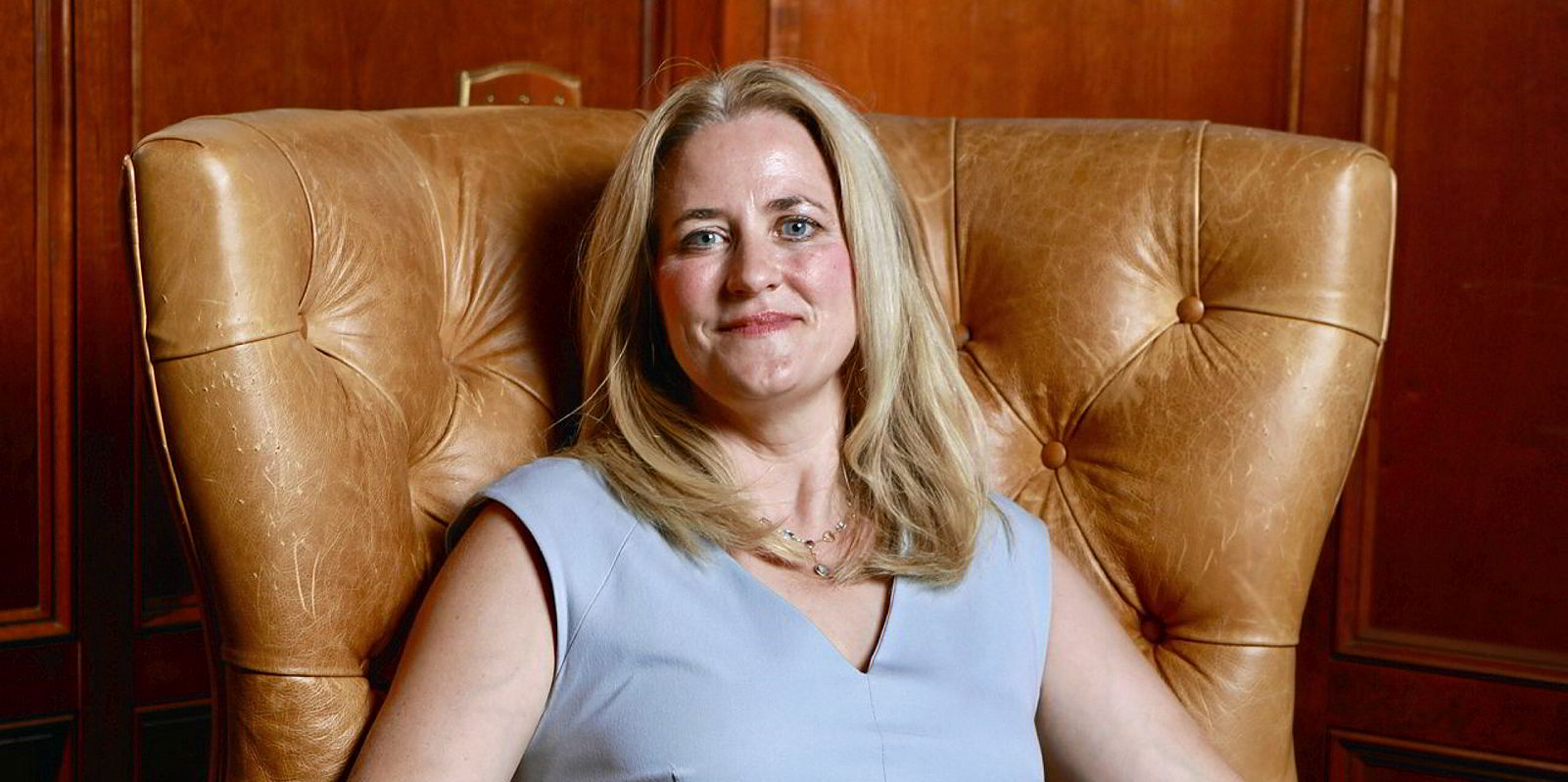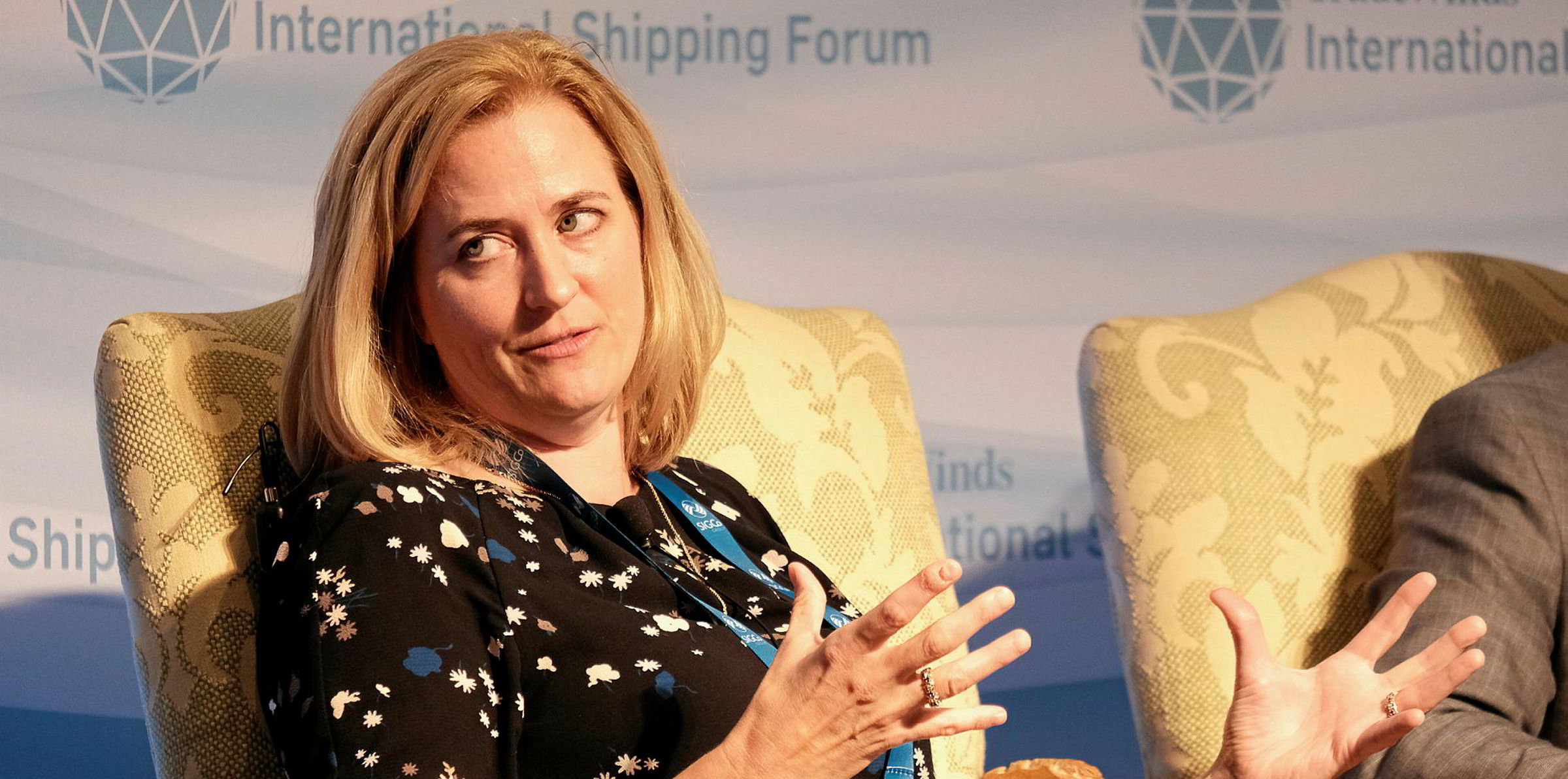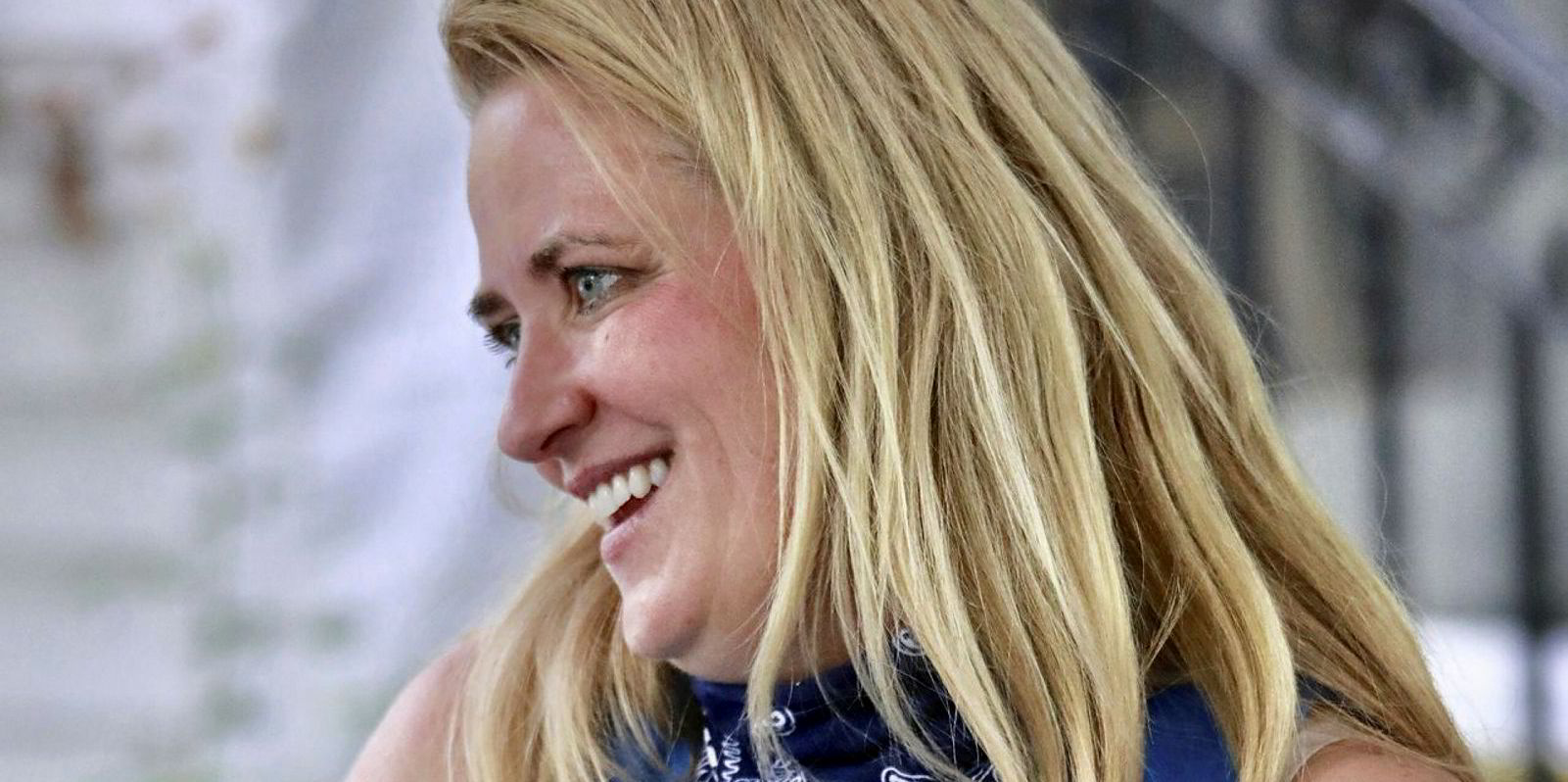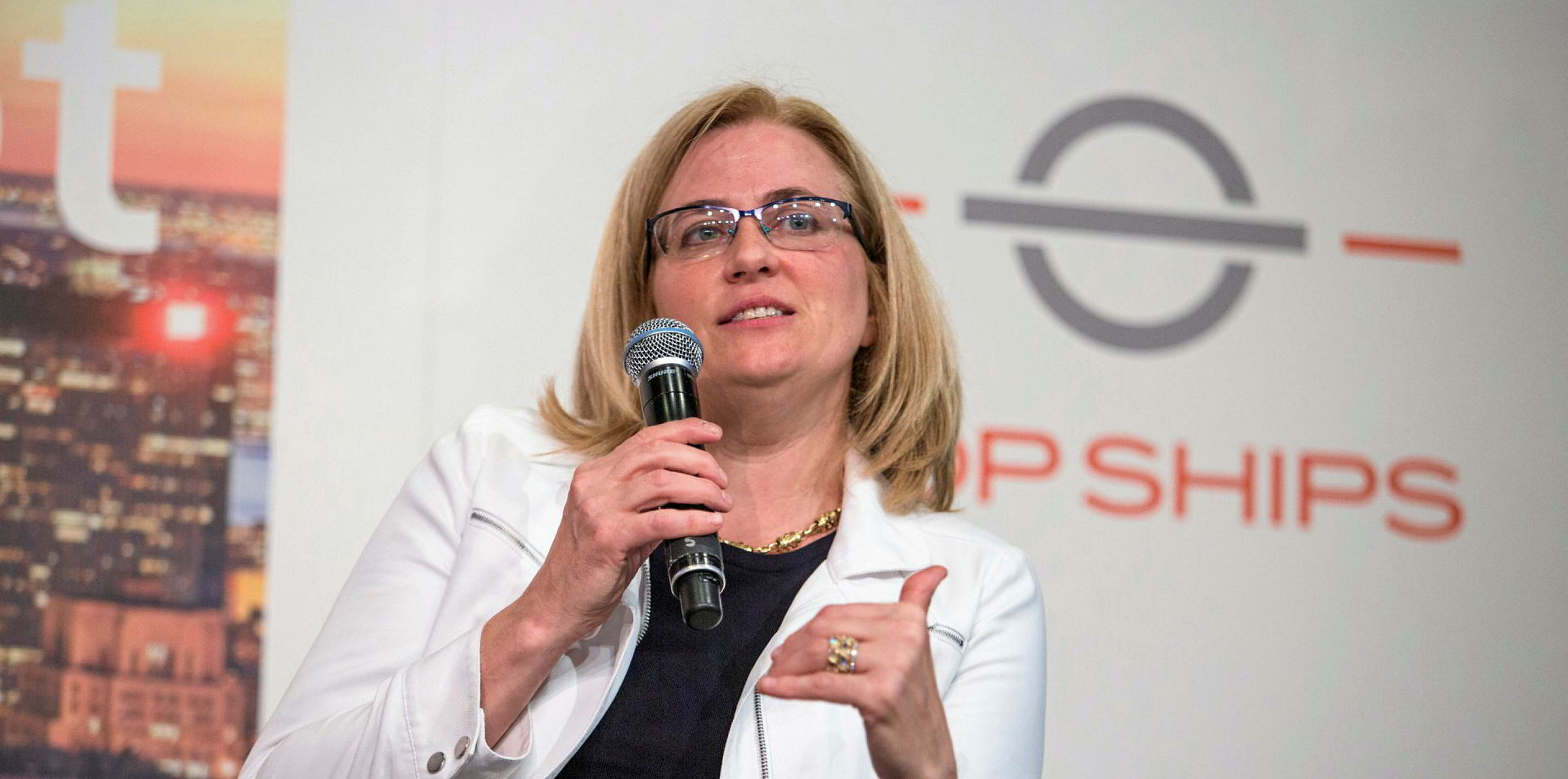Lois Zabrocky has essentially built a career through hard work and understanding how to make money for her employer.
They are traits she learned at an early age, as the youngest of eight children on a dairy farm in landlocked Iowa. “My dad had too many girls,” Zabrocky said, laughing, in reference to her five sisters.
“He used us like farm hands. He was a bit of a supporter of women before his time. I understood pretty early that the way to add value or be valued was to help my parents make money.”
They are lessons she has used in a 28-year shipping career that has vaulted her to chief executive of a major US-based tanker owner, International Seaways.
The 51-year-old invited TradeWinds into her home in suburban New Canaan, Connecticut, on the eve of the annual Connecticut Maritime Association (CMA) conference, where on Friday she will receive its top honour, the Commodore Award.
It will be bestowed virtually in this year of Covid-19, with Zabrocky becoming the third woman to don the trademark tri-corner hat.
Although Zabrocky oversees an entire $420m public company, she made her name in the chartering game. And as back home in Charlotte, Iowa — population 363 — her success was built on long hours and delivering revenue.
“When you’re in chartering, you know everything about the company: from insurance to operations to accounts receivable, no one can tell you you can’t know something,” she said. “It’s a fabulous way to learn shipping really well. And the company is counting on you to get the most dollars in the door. You take that to heart.”
Hard work, competence and loyalty
If hard work and competence are Zabrocky’s bywords, so is loyalty. It is a measure of her devotion to a company that while her employer has gone through three names in 28 years, she still has the same phone extension as when she joined the old Maritime Overseas Corp as the first woman on the chartering desk in 1992.
She stayed put when the next incarnation, Overseas Shipholding Group, struggled through Chapter 11 bankruptcy reorganisation from 2012 to 2014 even as others departed, willingly or not.
“I had opportunities to leave and I elected to stay,” she said. “It was truly a traumatic time. I felt like someone had to represent the business. You came to work every day fighting to save the business.”
That perseverance paid off when OSG split into US-flag and international units in 2016 and Zabrocky was tapped to lead the latter, newly named International Seaways.
Yet she might never have made it to MOC/OSG/Seaways — or even to shipping for that matter — if not for her older brother Dale. Like Lois, a good student, he was accepted to both the US Merchant Marine Academy and the US Military Academy. He chose the former.
The lure of the sea
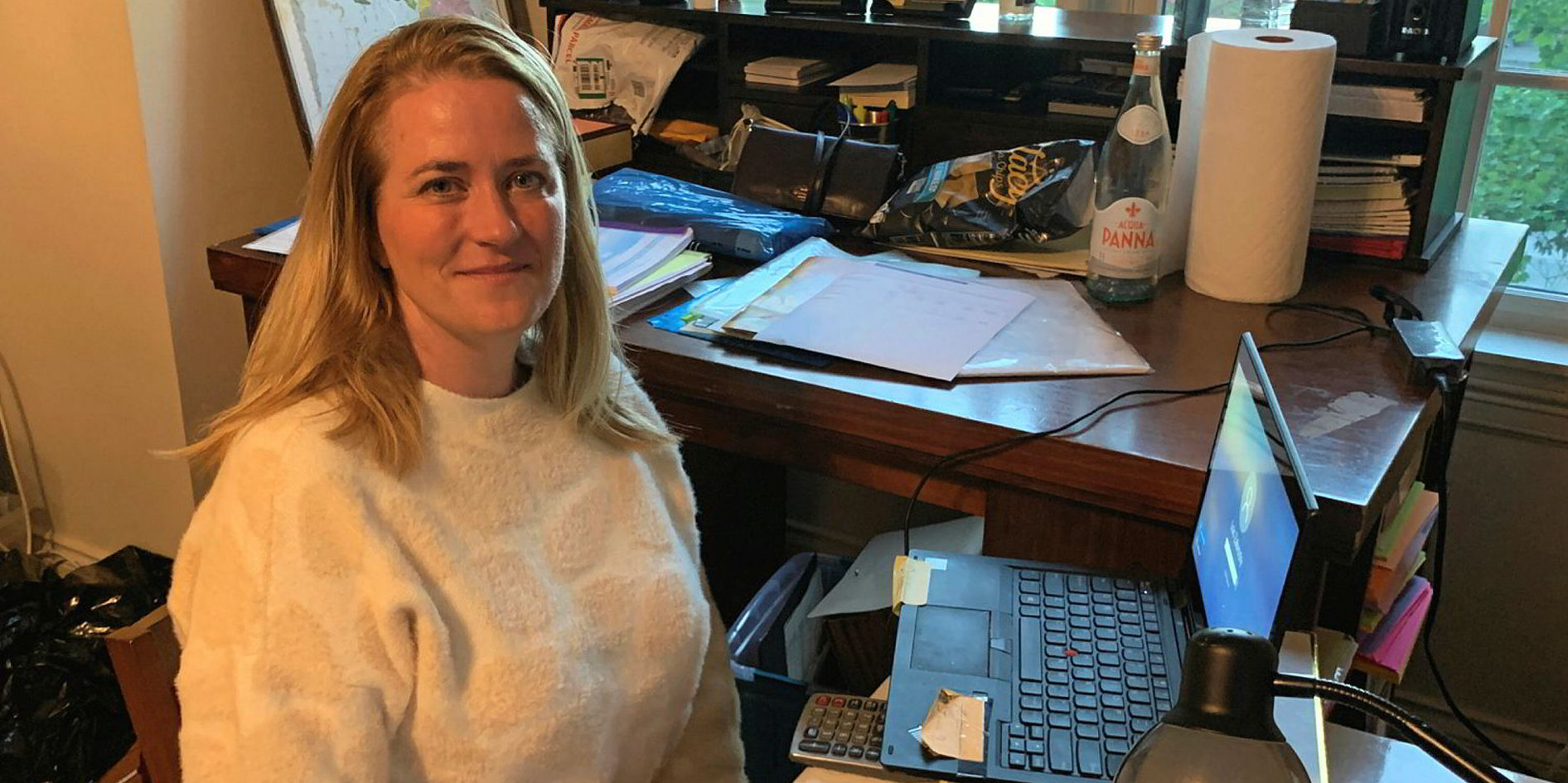
As Lois continued to toil at farm chores, her brother’s dispatches from New York about the wider world of the maritime industry grew increasingly enticing.
“He sent me an application. He said, ‘You get in and I’ll come back and do the indoctrination, I’ll scream at you and stuff’,” Zabrocky recalled. Without the prodding, “I probably would not have ended up in shipping”.
Instead, Zabrocky entered a new world in which there were few women — “probably 15% on a good day” — in a class of 270 that dwindled to 160, of whom 22 were female, by graduation day.
As it turned out, though, she had some special roommates. Tracey Gunnlaugsson went on to head SeaRiver Maritime, the former Exxon Shipping, and to head human resources for ExxonMobil. Katrina Haselman held management jobs at Chevron before moving to SeaRiver, where she oversees VLCC and suezmax chartering out of the Middle East Gulf.
“We’re all still close friends — it was just such a blessing,” Zabrocky said, before adding with characteristic self-deprecation: “These were savvy girls. I’m like this ‘yes sir’ farm kid.”
But her competitive side, and her pride in her Midwestern roots, come out when she is asked whether she was at all daunted by being a female in a male bastion.
“It was the first time I ever faced someone saying, ‘You shouldn’t be here because you’re a girl’. These were suburban [lightweights] as far as I was concerned.
“You’re telling me I don’t belong? You’ve never done a full day’s work in your life.”
Zabrocky has done that, and then some.
